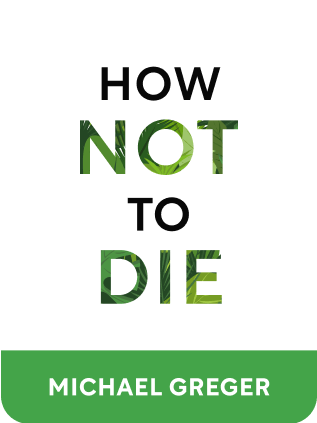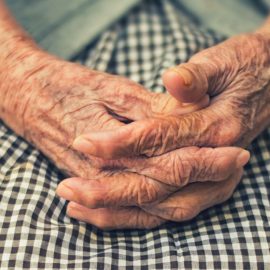

This article is an excerpt from the Shortform book guide to "How Not to Die" by Michael Greger. Shortform has the world's best summaries and analyses of books you should be reading.
Like this article? Sign up for a free trial here .
How common is depression? What are its main causes? What are some things you can do to lower your risk of falling into a depressive episode?
Seven percent of the population suffers from at least one depressive episode each year, but the definitive cause is still unknown. You can somewhat lower your risk of depression by eating healthy and exercising regularly.
Here is how to lower your risk of depression naturally.
What Causes Depression?
The definitive cause of depression is unknown.
The monoamine theory suggests that depression arises from the relative depletion of neurotransmitters like serotonin and dopamine.
- The enzyme monoamine oxidase breaks down monoamines; people with depression show higher levels of this enzyme.
- Tryptophan is an amino acid and precursor to serotonin. Depletion of tryptophan worsens mood.
How to Reduce the Risk of Depression
Disclaimer: there are big confounds with associative studies between mood and diet.
- Vegetarians tend to have a lower risk of depression than omnivores. However, it’s not clear the vegetarian diet is causative—it could be that happier people tend to seek out vegetarian diets.
- The gold standard, as always, is a randomized placebo-controlled trial.
Reduce arachidonic acid from meat.
- This is a proinflammatory compound; produced naturally in our bodies, but enriched in animal products.
- Omnivores consume 9x more arachidonic acid than vegetarians.
- In multiple studies, omnivores that go onto a plant-based diet report significantly increased energy, better sleep, and general health.
- Highest sources of arachidonic acid: chicken and eggs have the highest level; beef, pork, and fish.
Avoid aspartame.
- An experiment showed a high-aspartame diet shows more depression and irritability and lower cognitive function
Plants are natural monoamine oxidase inhibitors.
- Phytonutrients from plant foods like apples, berries, onions, spices naturally inhibit MAO, which increase levels of neurotransmitters in the brain.
Tryptophan
- If tryptophan is important to produce serotonin, why not eat more of it?
- Tryptophan supplements led to deaths in the 1980s and subsequent bans.
- High-protein meals fail to increase tryptophan, possibly because other amino acids compete for absorption in the gut or across blood-brain barrier.
- Carb ingestion improves mood and lowers depression.
- This might work by shunting non-tryptophan amino acids from the bloodstream into muscles, which then allows tryptophan more access into brain.
- Seeds like sesame, sunflower, and pumpkin have high tryptophan-protein ratios.
Saffron
- Worked as well as Prozac for depression.
- Smelling diluted saffron improves anxiety for 20 minutes.
Coffee
- Suicide risk drops with increases in coffee dose.
- People who drink 6 cups of coffee daily were 80% less likely to commit suicide.
- Adding sugar to coffee negates its positive effects on mood.
Antioxidants and folate
- Free radicals and oxidative stress cause tissue damage.
- Higher levels of carotenoids reduce damage.
- Lycopene from tomatoes has the highest antioxidant activity.
- Daily eaters of tomatoes have half the odds of depression.
- Antioxidant supplements do not seem protective, while whole foods do.
Exercise
- An interventional study showed exercise was equivalent to Zoloft for relieving depression in people over 50 years old.

———End of Preview———
Like what you just read? Read the rest of the world's best book summary and analysis of Michael Greger's "How Not to Die" at Shortform .
Here's what you'll find in our full How Not to Die summary :
- The health benefits of a plant-based, whole-food diet
- How to reduce your risk of developing the most common diseases that can kill you
- The 12 foods you should eat daily to maximize health benefits






